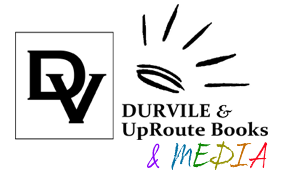My Life in Propaganda: Language and Totalitarian Regimes
Some images that go along with the book "My Life in Propaganda" by Magda Stroinska
Listen to a sample from the Audiobook
---
An Excerpt from the Book
From Chapter 3, The Ideal Human Being or the Roots of Totalitarianism
I admit that certain features made people in Eastern Europe seem different than those in the West, at least during communist times. The Easterners were—usually—less confident and not as career oriented. Maybe the careers in communist countries were not worth the effort? People in Eastern Europe always had time or at least rarely tried to impress others with how busy they were. And yet one salary was hardly enough to make ends meet and most of my colleagues and friends had more than one place of work or did extra jobs, like translations, language courses or private lessons. I did all of those things myself, in addition to my full-time job as a junior assistant at the university, which was a bit like the graduate teaching assistantship of a PhD student in the West, except that I was teaching a full load of undergraduate courses. As there was no official unemployment in those times, we never worried about losing our jobs and finding ourselves on the street. Our jobs did not pay much but were relatively secure. No one took them too seriously in terms of work ethics. There was nothing morally wrong about going out shopping during office hours if something of interest was ‘thrown’ into the stores. One never knew when ‘they’ would ‘throw’ something and so this activity of shopping during working time was fine with everyone, including many bosses who acted similarly.
While no one really cared about ideology when I was growing up, the generation of my parents (or in particular my parents-in-law, who were significantly younger than my own parents) remembers that most attempts to be different, to deliberately not fit in, to project individuality or to simply resist being gleichgeschaltet (made to conform) were discouraged or punished. My father-in-law still remembers a special meeting of the student organization (ZMP—the Polish Youth Association) that was called when a female student at the Higher School of Agriculture dared to wear gloves when picking up potatoes in a field as part of the voluntary social service. The meeting was to consider whether this bourgeois behaviour merited her expulsion from the University. Allowing one student to be different was dangerous. This must have also been the reason why another of my father-in-law’s friends from middle school, at the time junior vice champion in tennis, Aldek Kudliński, was almost expelled from school for using both hands in backhand—a move he learned while watching Western tennis players. That too was considered a capitalist aberration. Aldek (Romulad) Kudliński (1931–1994) became a renowned economist and has now a private university named after him.
If we were to look for the origins of the idea that human collective can be shaped according to some philosophical theories or political agenda, we may find multiple examples of such theoretical or practical experiments in the past. We could begin this discussion of totalitarian ideology with a look at the ideals of social development and improvement that go back to Jean-Jacques Rousseau and other writers of the Enlightenment. In fact, we may go even further into the past, to Plato and his concept of an ideal society. This topic is important because it may help to capture the undeniable attraction of totalitarianism in its various disguises.
